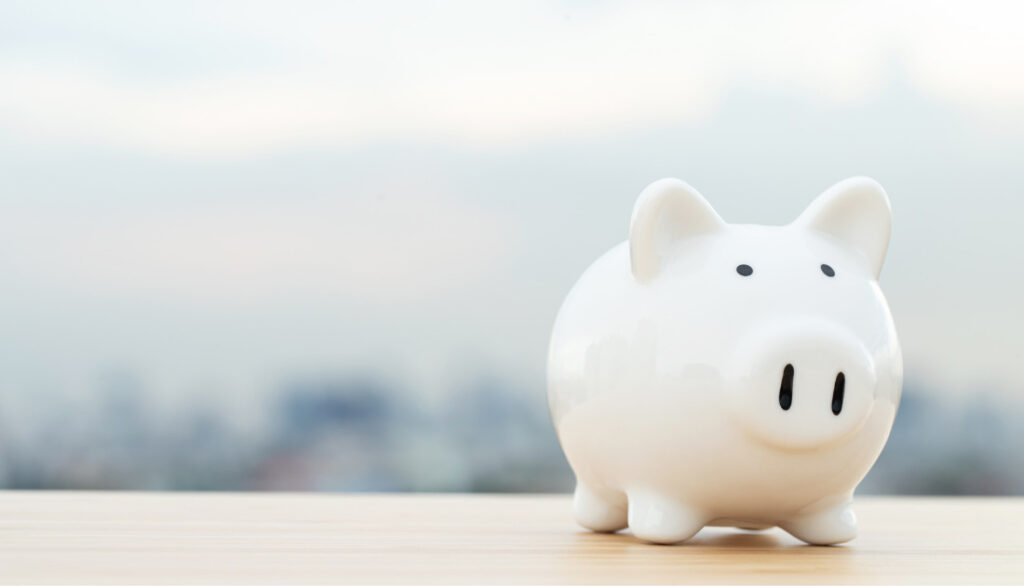- Emergency funds serve as a financial safety net for unexpected expenses or periods of unemployment.
- Both doctors and doctors-in-training can benefit from the financial security provided by an emergency fund, regardless of income.
- High-yield savings accounts can be a great place to allow your emergency fund to grow passively.
COVID-19 put a strain on the financial security many doctors felt prior to the pandemic. According to a 2020 California Medical Association report, 64% of physicians expressed a need for financial assistance, and 47% reported a need for temporary housing during the first six months of the pandemic.
Beyond pandemics, many face large, unexpected expenses like medical bills, car repairs or unemployment. Having a designated emergency fund that is accessible for these moments of financial strain provides a healthy safety net for both doctors and doctors-in-training.
What is an emergency fund?
An emergency fund is a sum of money set aside that is easily liquid or accessible to be used as a financial safety net for unexpected expenses or periods of unemployment. This contingency fund could come in handy for situations like unforeseen medical expenses, home appliance repair or replacement, or major car fixes.
Why do I need an emergency fund?
Emergency funds serve as a financial buffer in times of financial need, preventing or delaying the need to rely on credit cards or high-interest loans. Without these savings, a period of financial strain can have a lasting impact.
These emergency funds can be especially important for individuals with existing debt — like many doctors — because they can help you avoid additional debt should a crisis arise.
Do I, as a doctor, need an emergency fund?
The average American could benefit greatly from an emergency fund, as many do not have a great deal of discretionary income after taxes, bills and other necessities are paid (an average of $1,729 per household according to the Bureau of Labor Statistics). There are differing perspectives on whether doctors would benefit from the same safety net.
Physicians, dentists and veterinarians typically have much more income than the average American, meaning they may be able to cover an unexpected expense without the need for credit cards or high-interest loans. Nevertheless, an emergency fund can give a greater sense of security to doctors, regardless of their annual income.
How much should I have in my emergency fund?
The rule of thumb is to have three to six months worth of living expenses saved up, but you won’t get there right away. As doctors ourselves, we admittedly did not have the ability to save enough to have an emergency fund in school or residency.
But having any amount saved — even just $500 — can protect you from many financial surprises and help you avoid going into more debt.
Should I prioritize paying off my high debt balance before starting my emergency fund?
Large amounts of student loan debt are common in our field, but it doesn’t prevent you from saving. Even young doctors with the majority of their debt still to pay off benefit from these savings due to compound interest over time.
Where should I put my emergency fund?
Emergency funds should have high liquidity and be easy to access, which means long-term investment accounts may not be your best option. High-yield savings accounts allow your money to grow at a faster rate than traditional checking or savings accounts, while still being easily accessible for the moment an unexpected need presents itself.
High-yield savings accounts are typically FDIC insured up to $250,000, so you don’t risk losing your money in a potentially volatile investment such as the stock market. Instead, this savings account allows your money to be secure, while growing passively.
High-yield savings accounts are a great option for emergency funds, but other places to store your savings include:
- Certificate of deposit – CDs are another place to store emergency funds with the benefits of an increased interest rate, but require you to leave your money untouched for a predetermined period of time. This can prevent use of your emergency fund when the need arises without penalty.
- Traditional checking account – Traditional checking accounts are another secure option for your emergency fund. These don’t have the higher interest rates of high-yield savings accounts or CDs, but you will have access to your funds at any time.
- Cash – Some elect to keep their emergency savings in cash. Not only can your cash be lost or stolen but also it loses value over time with inflation. This is another advantage of interest-earning options such as a savings account.
How do I build my emergency fund?
Emergency funds are not a small savings goal. Saving for three to six months worth of rent, bills, food and other general expenses can add up. You likely won’t be able to set it aside all at once, but using these tips may help you get there more efficiently:
- Determine how much you need to save. Use an emergency savings calculator to find how much you should save.
- Make a commitment. Planning how much you will save every month or after each paycheck will help keep you accountable as you build your emergency fund.
- If your employer uses direct deposit, you can streamline this process by dividing your paycheck, with a portion of it automatically depositing into your savings account.
- Manage your cash flow. Actively tracking your spending and savings will help you find areas that can be adjusted for greater flexible income that can be saved.
- Take advantage of savings opportunities. When you receive a large sum of money unrelated to your expected paycheck, it is tempting to want to spend it all, but this can be a great opportunity to boost your emergency fund savings. Tax refunds and monetary holiday or birthday gifts are all examples of this.
When should I use my emergency fund?
When you use your emergency fund is up to you, but we recommend setting some guidelines for yourself to ensure that it is used for its intended purpose. Not every unexpected expense warrants use of your emergency fund.
Don’t be afraid to use it if you need, but use your judgment to determine what a valid need is. If you do use your emergency fund for any reason, work to replenish your savings as soon as you are able.
Before you go…
Emergency funds are a great tool but are also entirely up to you! High income earners like doctors are often not as susceptible to the challenges of an unexpected expense but may appreciate the sense of security this safety net brings.
No matter your savings goal — emergency fund, down payment on a home, or otherwise — a high-yield savings account can help you get there. Our high-yield savings account is a great option for you with a rate of over 10x the national average!
To learn more about high-yield savings accounts, visit:
Panacea Financial, a division of Primis. Member FDIC.





